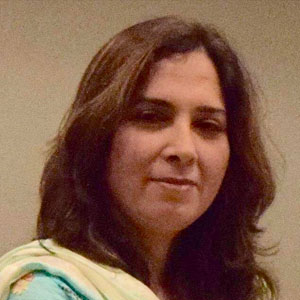The IMF program has become a survival kit for Pakistan’s economy. Though we are in the 23rd program, but according to Prime Minister Shahbaz Sharif, his government had to bend backward to get the $ 3 billion in stand-by-Arrangement. The expected amount was $2.5 billion of the $6.5 billion bailout programs Pakistan entered in 2019, which expired on June 30, 2023. The $3 billion funding spread over nine months is much higher than expected.
Pakistan’s record of completing the IMF programme has not been encouraging. Out of 13, only one program was completed during the last PML-N government. While Pakistan previously managed to wade through the financial crisis without IMF, today’s condition is much more severe. Not only has the kitty dried up, every other financial indicator—the balance of payment, trade deficits, trade balance, and the exchange rate has worsened. According to data compiled by Bloomberg, the rupee fell by almost 15% in January, the biggest monthly fall in at least 34 years. On top of that, a deteriorating political crisis of a magnitude never seen before pushed a large swath of international investors and domestic businesses to close down their ventures, reduce investment or divest.
Social media was swamped with congratulatory messages from all sectors and walks of life. The market also responded positively to a deal that saved Pakistan from default. The Pakistan Stock Market registered a 2,000-point surge. Barclays upgraded Pakistan’s sovereign bonds rating from ‘underweight’ to ‘market weight.’
The delay in securing the lifesaving funds was due to the Finance Minister of Pakistan, Ishaq Dar, ’s resistance to keeping the sales tax at 16% and leaving the prices of petroleum products unchanged. When tabled in the National Assembly in the first week of June, the finance bill raised a red flag at the IMF head office in New York. An increase in the salaries of the public sector employees and a rise in the pension funds were the recipes for further compounding Pakistan’s balance of payment crisis.
Pakistan has not reduced its expenditure, but it has added new taxes to raise $1.34 billion in the fiscal year 2022-23. Pakistan’s Tax to GDP ratio is dismally low at 10%. Other adjustments demanded by the IMF included reversing subsidies in power and export sectors, hikes in energy and fuel prices, jacking up the key policy rate to 22%, a market-based currency exchange rate, and arranging for external financing.
For years IMF has been asking the Pakistan government to either restructure or shut down the state-owned organizations, but we have yet to see any serious attempt toward this belated and essential step. The 134 non-functioning state-owned organizations with an annual injection of $4 million is a burden that can only be described as senseless.
In 2021, Dr Arthur Betz Laffer, an American economist, was on a visit to Pakistan to attend Seminar arranged by Prime Institute Islamabad. He talked at length about Pakistan-IMF relations and, considering it a sour and untenable bond advised the economists in government to stop taking diction from the so-called lender of the last resort. He believed the IMF and the World Bank had only exacerbated Pakistan’s economic woes. He reminded us that we were not their slaves and that we should act independently.
This advice of acting ‘independently’ reminds one of the ardent opposers of the IMF and WB, Mr Yanis Varoufakis, a Greek-Australian economist and politician. He served as the Greek Minister of Finance from January to July 2015. During his tenure as the finance minister, he refused to bend to the lending institutions’ demands and said, “…we are insolvent, and we have to embrace our insolvency.”
Varoufakis met Barack Obama at the Greek Independence Day celebration in the East Room of the White House and was asked to “swallow bitter stuff,” like he did to survive the 2008 economic crisis. Varoufakis replied, “You inherited a mess when you came to office, but at least you had your central bank behind you. We inherited a mess, and we have a central bank”—the European Central Bank—“trying to choke us.”
On the other hand, Pakistan was not prepared to even think of going that far—for the sake of self-pride and self-respect.
On the eve of the IMF staff-level meeting, the Islamic Development Bank assisted Pakistan in achieving the IMF desired reserve level. Other than that, Pakistan secured $1 billion in new financing from the United Arab Emirates early this year and also expected China to roll over a $1.2 billion loan.
About 30% of Pakistan’s foreign debt, roughly $30 billion, is owed to China, according to a 2022 IMF report. That is triple the amount of IMF debt and more than the amount given by either the World Bank or the Asian Development Bank.
This snapshot of loans and debts does not present a promising picture. No country can think of progressing in this way. A loan from IMF or any other MDB cannot be a substitute for investment that opens employment opportunities and a culture of hard work and self-dependency.























